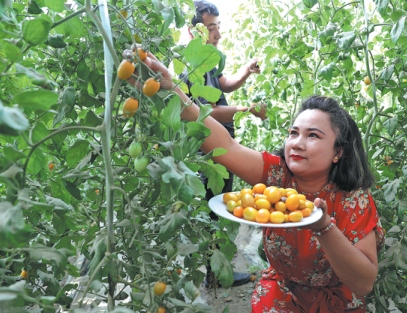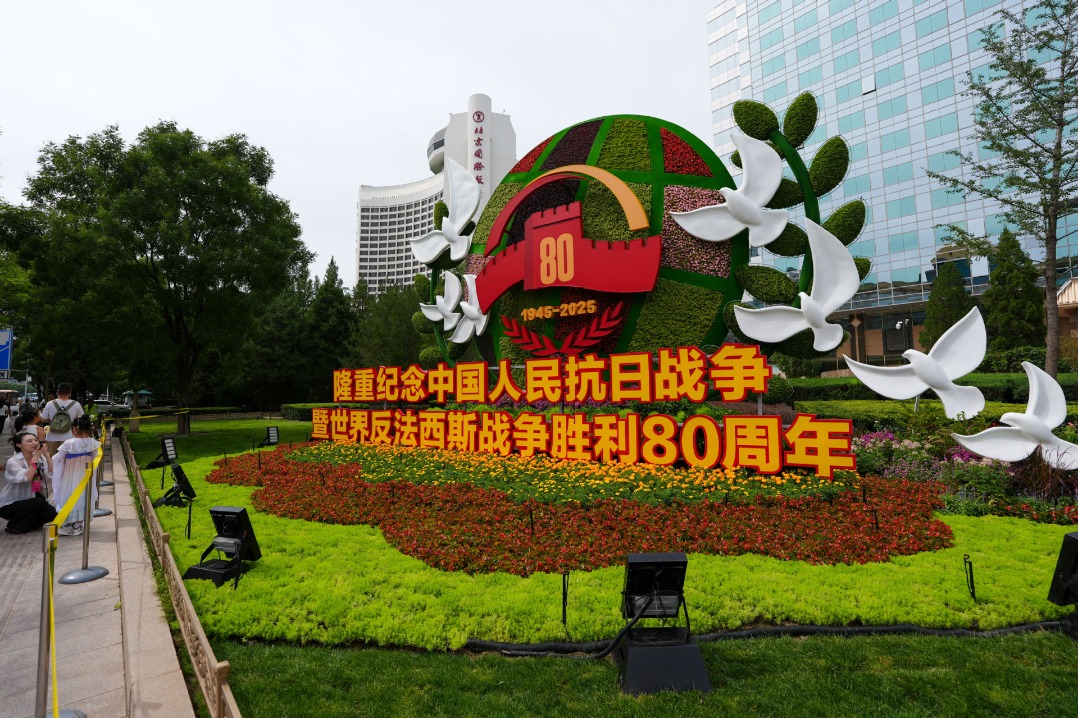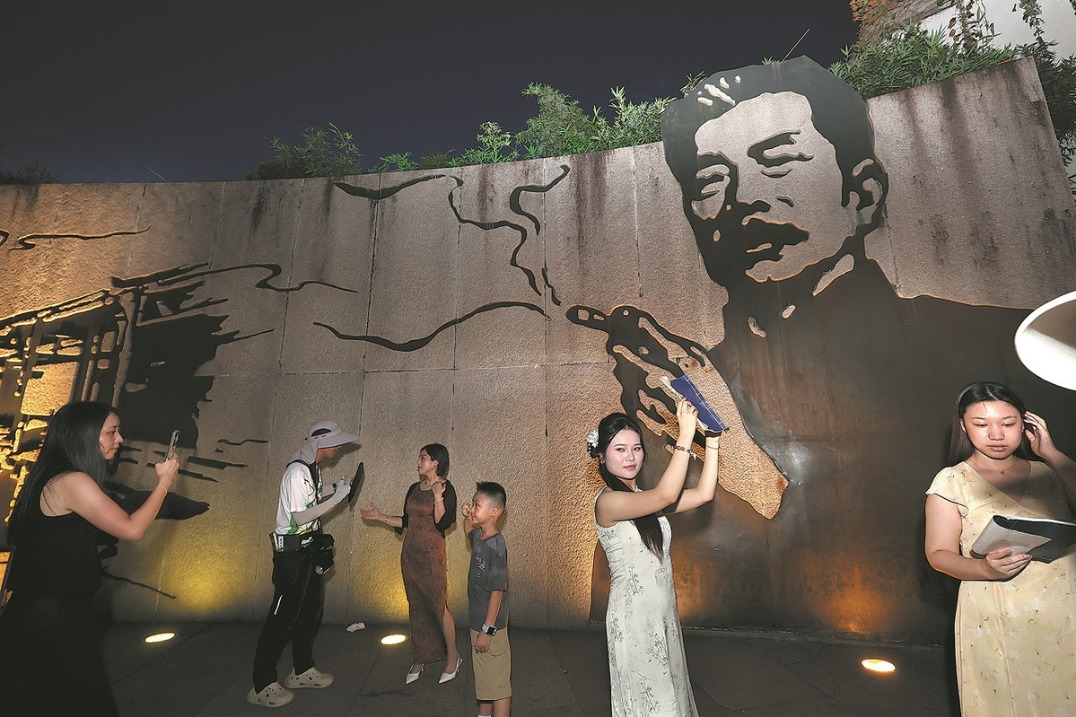Poor counties derive wide range of benefits from paired assistance programs

Paired assistance programs match wealthier eastern provinces with impoverished counties in the Xinjiang Uygur autonomous region in China's far west.
The aim is to provide economic development, education, healthcare and other forms of assistance. The programs have long served as a way to advance unity and common prosperity.
One of the programs is in Jinnan New Village, which is situated amid the rolling Gobi Desert in Xinjiang's Qira county.
In 2014, the village was home to vast areas of wasteland on the southern edge of the Taklimakan Desert, before a team of officials from the village's namesake district in the port city of Tianjin arrived from more than 2,000 kilometers away.
They poured tens of millions of yuan into the area's poverty relief fund, and in just four years built from scratch a vegetable-growing village that is home to more than 400 greenhouses.
Since 2018, some 370 families from the Uygur ethnic group, mostly herders who roam pastures on the slopes of the Kunlun Mountains, have moved to the village.
They settled in free homes, provided by the local government, which have tap water and flush toilets.
The village also boasts a kindergarten and, just 2 kilometers away, an industrial park built with help from Tianjin is ready to offer employment to the herders-turned-workers. With aid mostly from ethnic Han technicians sent from Tianjin, the villagers learned to plant tomatoes, trim fig trees and grow cucumbers. Now, each greenhouse helps earn average revenue of 20,000 yuan ($2,806) annually.
Gulzulnur Turson, 23, is among those who relocated to the village. She and her 26-year-old sister, Ibadat Turson, were recently checking fig trees in one of three greenhouses leased to their family three years ago.
The family, which moved to the new village in 2018 from a secluded mountainous pasture, also grows chiles and tomatoes.
Gulzulnur Turson said that due to poor transportation links, she had to study at a boarding school in the county seat of Qira.
"At that time, I only went home once every two weeks, usually by a car arranged by the school," she said, adding that she was later admitted to a college in Urumqi, the regional capital, and now helps out at home.
She is preparing for a local civil servants' exam because she wants to stay near her parents. Meanwhile, sitting on an embroidered couch in his 80-square-meter home, Rozmemet Abdula, 50, played the dutar, a two-stringed instrument popular among Uygur herders.
He and his wife, who have no children, lease three greenhouses to plant chiles and grapes. He said that in addition to the lucrative agricultural work, the tap water in the village is a great convenience.
"The water is as clear as bottled water," he said, his words translated by an interpreter.
In the pasture where the couple used to live, there was no tap water, and the water they used to drink was a muddy color.
Paired assistance programs such as the one in Jinnan New Village are well-documented by multimedia illustrations at a nearby exhibition hall that was built with help from the Tianjin authorities to thank those who contributed to reinforcing unity in Qira. They include a Uygur farmer who adopted a baby from the Han ethnic group who he found abandoned at a local hospital in 2000. He raised the boy and sent him to college. Also featured is an ethnic Han businessman, whose date-growing operation in the Gobi Desert created jobs for hundreds of locals and helped turn large tracts of sand dunes into an oasis.
Memetreyim Memetmin, Party chief of a village that is famous for growing pomegranates, has also earned a place in the hall.
He served as a deputy to the National People's Congress, the country's top legislature, from 2013 to 2018, and was received by President Xi Jinping on the sidelines of the annual meeting of national lawmakers in 2017.
While showing visitors around the pomegranate orchards, which are located close to a pomegranate winery built with help from Tianjin, Memetreyim Memetmin said that in 2017 the commercial crop was the theme of a report he made to the president.
"In reply, he told me that people of all ethnic groups should stick together, just like pomegranate seeds," he said.


Today's Top News
- China, India should jointly maintain peace in border areas, Defense Ministry says
- Beijing to host high-level global security conference in September
- 26 foreign leaders to attend China's V-Day commemorations
- Artificial intelligence can power Xizang's leap into a better future
- Export of trade in services a priority
- SCO helping develop a multipolar world order






























